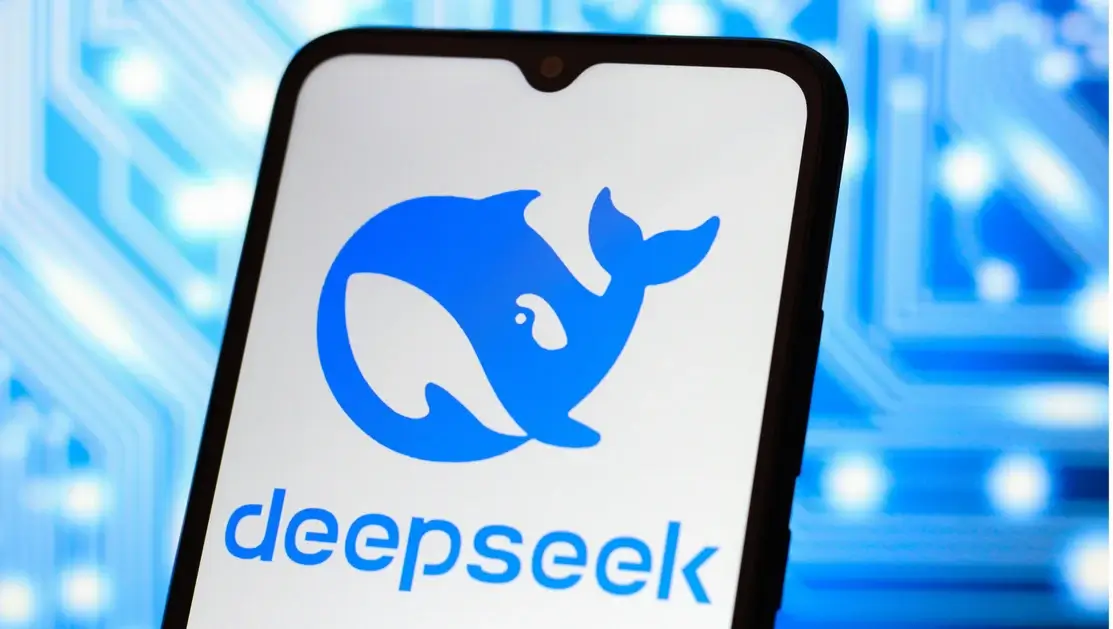The artificial intelligence (AI) landscape is undergoing a significant transformation, with new players emerging to challenge the dominance of established giants. Among these disruptors, DeepSeek, a Chinese AI startup founded in 2023, has rapidly gained prominence for its cost-effective and competitive solutions. With a focus on efficiency, open-source models, and specialized capabilities, DeepSeek is poised to reshape the AI industry and democratize access to advanced AI technology.
DeepSeek's emergence is characterized by its commitment to developing high-performance AI models at a fraction of the cost incurred by industry leaders. The company claims to have trained its R1 model for under $6 million, a stark contrast to the tens or hundreds of millions spent by companies like OpenAI and Google. This cost efficiency is achieved through a series of engineering innovations, including optimized hardware requirements, reduced reliance on cutting-edge chips, and innovative model architectures like Mixture-of-Experts (MoE). The MoE architecture activates only a fraction of the model's total parameters for each token, significantly reducing computational overhead without sacrificing performance. Furthermore, DeepSeek employs distillation techniques to transfer reasoning capabilities from larger models to smaller ones, and reinforcement learning to enhance performance without extensive supervised fine-tuning.
In addition to cost efficiency, DeepSeek distinguishes itself through its open-source approach. Unlike OpenAI's proprietary models, DeepSeek-R1 is open-source and free to use, allowing organizations and developers to integrate powerful AI capabilities without costly subscription plans or usage-based fees. This open-source strategy fosters a collaborative tech culture, promotes innovation, and democratizes AI development by making advanced AI technology accessible to a wider audience. DeepSeek's open-source commitment extends to its code, with the company releasing its flagship model and smaller variants under the MIT license.
DeepSeek's AI models have demonstrated remarkable performance across various tasks, rivaling and even surpassing the capabilities of established models like GPT-4 and Claude AI in certain areas. DeepSeek-V2, for example, achieves strong performance while saving significant training costs, reducing KV cache, and boosting maximum generation throughput. DeepSeek-Coder-V2, a specialized AI model for coding tasks, has achieved performance comparable to GPT4-Turbo in code-specific tasks, while supporting a wide range of programming languages and offering a large context window. Moreover, DeepSeek's R1 reasoning model has showcased exceptional logical reasoning abilities, outperforming ChatGPT and Claude AI in complex problem-solving tasks.
DeepSeek's competitive advantage lies in its ability to deliver high-performance AI solutions at a lower cost, making it an attractive option for businesses and developers seeking to reduce expenses without compromising on quality. Its API services are reportedly significantly cheaper than OpenAI's, and its open-source nature allows for self-hosting, further reducing API costs and enhancing privacy. This cost-effectiveness, combined with its strong performance and open-source approach, positions DeepSeek as a formidable competitor in the AI landscape, capable of reshaping the industry and driving broader AI adoption.
The emergence of DeepSeek has several implications for the AI industry. First, it challenges the notion that only large tech firms with vast financial resources can dominate the AI field. DeepSeek has proven that cutting-edge AI models can be developed with limited computing resources and thoughtfully optimized training methods. Second, it puts pressure on established players to rethink their revenue streams and explore more cost-effective approaches to AI development and deployment. The availability of high-quality, open-source AI models like DeepSeek-R1 disrupts the existing monetization strategies of companies that charge users for access to AI-powered services. Finally, it accelerates the democratization of AI, making advanced AI technology accessible to a wider range of organizations and individuals, fostering innovation and driving broader AI adoption across various industries.
Despite its impressive achievements, DeepSeek faces certain challenges. Security concerns have led some countries to restrict access to DeepSeek's AI chatbot program on government devices, highlighting the need for robust data security and compliance measures. Integrating DeepSeek's models into existing business operations may also pose challenges, requiring expertise and careful planning. Nevertheless, DeepSeek's emergence as a cost-effective and competitive AI solutions provider represents a significant shift in the AI landscape, promising to reshape the industry and democratize access to advanced AI technology.

















